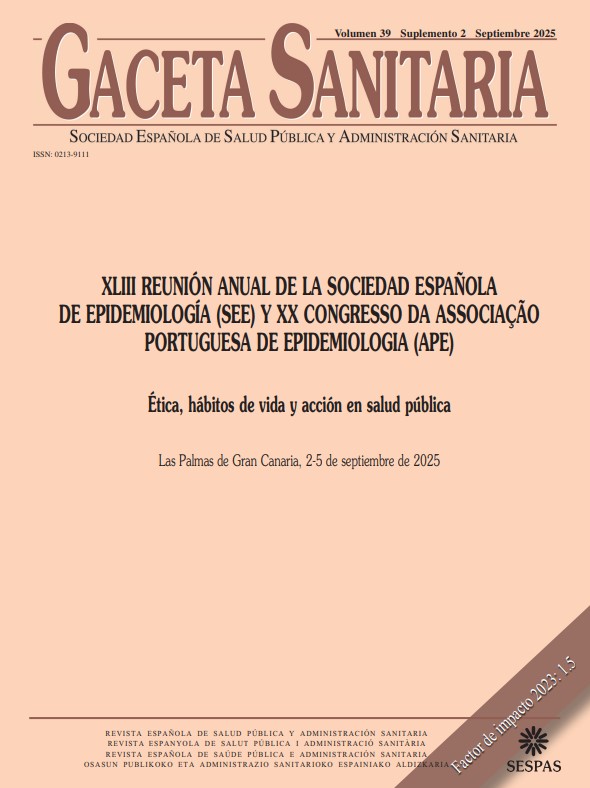418 - COLONOSCOPY COMPLICATIONS AFTER POSITIVE FAECAL IMMUNOCHEMICAL TEST: A LOOK AT THE BASQUE COUNTRY’S BOWEL CANCER SCREENING PROGRAMME, SPAIN
Basque Country Preventive Medicine and Public Health Teaching Unit, Osakidetza Basque Health Service; Barrualde-Galdakao Integrated Health Organization, Osakidetza Basque Health Service; Ezkerraldea-Enkarterri-Cruces Integrated Health Organization, Osakidetza Basque Health Service; University of the Basque Country (UPV/EHU); Colorectal Cancer Screening Programme Coordination Centre, Osakidetza Basque Health Service; Biobizkaia Health Research Institute.
Background/Objectives: Colorectal cancer (CRC) is one of the most frequent cancers globally. Bowel cancer screening programmes (BCSP) can reduce incidence and mortality. The Basque Health Service’s BCSP monitors screening-related adverse effects since its implementation. Objective: to analyse factors associated with colonoscopy complications at 30 days of procedure throughout 2009-2022.
Methods: A retrospective observational population-based study was conducted. The primary outcome was the incidence of colonoscopy complications within 30 days post-procedure. Complications included lower gastrointestinal bleeding, perforation, postpolypectomy syndrome, sedation-related complications and death. Independent factors were sex, age group, period, hospital teaching status, caecal intubation, bowel cleansing, and result.
Results: 84,210 colonoscopies were included. The incidence of any complication was 102.7 per 10,000 colonoscopies (95%CI 96.0-109.8). The most common complications were lower gastrointestinal bleeding (55.9 per 10,000 colonoscopies, 95%CI 51.0-61.2) and perforation (22.8, 95%CI 19.7-26.3). Complications occurred less frequently in the 2018-2022 period, compared to the previous one (OR 0.89, 95%CI 0.77-1.03). The complication rate was higher in older groups (60-64: OR 1.24, 95%CI 1.02-1.51; 65-69: OR 1.26, 95%CI 1.04-1.54) and when a CRC (OR 11.49, 95%CI 7.39-18.06) or an advanced lesion (OR 14.84, 95%CI 10.64-21.43) was found.
Conclusions/Recommendations: Enhanced quality metrics in recent years, such as lower complication rates, suggest that colonoscopists and colonoscopy units have developed considerable proficiency. Close monitoring for complications is needed following the inclusion of older age groups in the BCSP.















